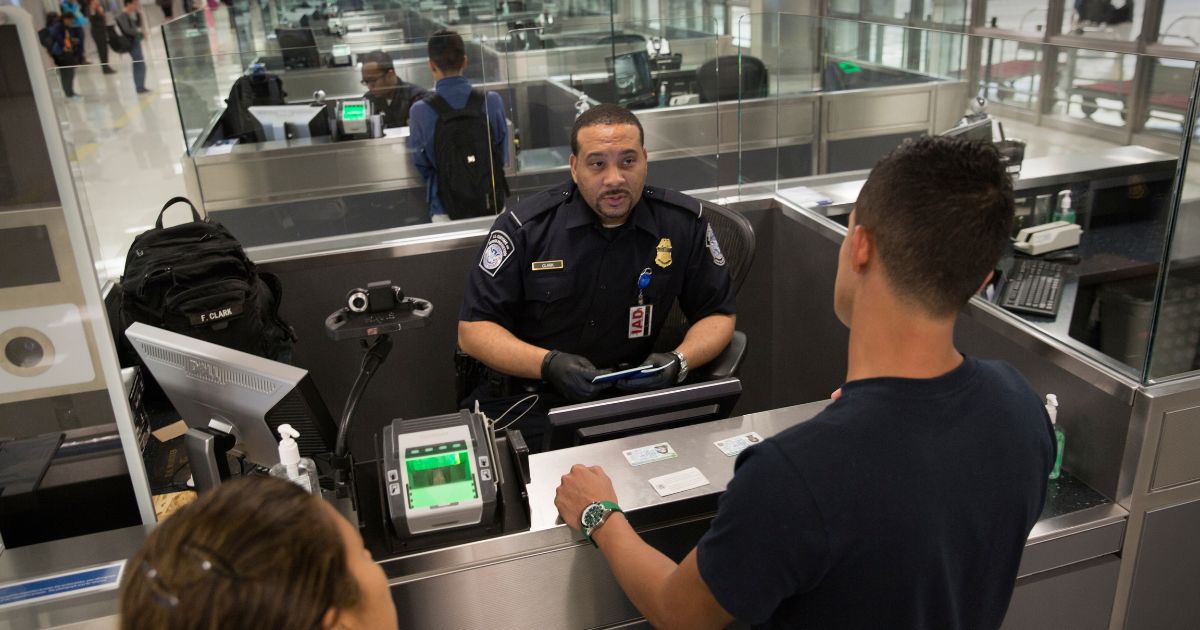Lately, there has been a rise in detained cases after security checks by the U.S. Customs and Border Protection. This has increased panic and concern among the travelers who are coming to the country. The heightened security has made people helpless, not knowing what to do when they are questioned by the authorities and how to comply with the regulations. Some are even confused about what to do when asked for device checks, as it’s invading their privacy.
This is due to the Trump administration’s migrant crackdown to ensure national security. There have been so many deportation cases and detentions. Some tourists are even denied entry even when they hold legal documents and visas. Even sharing your opinion that goes against Trump may deny you entry, as happened with a French scientist entering Texas.
Citizens of America with green cards and visa holders are also under the radar, for they also share such things on social media. They fear confiscation of devices and deportations for not-so-serious opinions and lame reasons.
A French researcher was detained on arrival in the US, his computer and phone confiscated/searched, and his texts criticizing Trump’s cuts to scientific research were deemed by DHS agents as “hatred of Trump [that could be] described as terrorism.” He was deported the next day. pic.twitter.com/g7tJPMBFDi
— Séamus Malekafzali (@Seamus_Malek) March 19, 2025
CBP still holds authority here if they want to verify your identity and check devices to keep up with national security. They don’t want anyone who is a threat to enter the country. So, checking phones, laptops, and tablets has become common under Trump’s rule. Moreover, if you’re politically outspoken on social media, you’ll be under high scrutiny.
Amidst all the checks and denying entry to travelers, this does not comp;y with digital privacy rights. Within 100 miles of any US ports, travelers hold no such rights. They will be interrogated, and their devices will be checked to determine whether they are citizens or immigrants.
You could have a REAL ID but still get questioned at the airport by the border agents, along with an intense search. It is important to protect your privacy in such cases and be prepared in advance. People can improve their digital security when entering the border. One way to do so is to remove any biometric data and locks from your phone and tablets.
If they ask you for your password, technically, you do not need to comply; however, be sure of your immigration status. For citizens, the entry cannot be denied even if you refuse to unlock your device. Your device may be taken away, but you may ask for it back later through documentation.
Nope. No legal right to search a phone. Some folks have sensitive data; Healthcare. HIPPA protects that.
U.S. Customs and Border Protection have the authority to search your phone, but your password or Face ID can make a difference. Here’s what to know.https://t.co/qVgvf26ykg
— SealyChief (@Sealychief) May 16, 2025
But if you’re not a citizen, you’ll have to provide your password or get denied entry if you refuse. When you have a password/passcode on your device, enter it on your own instead of telling it to the agent. This is when turning off the biometrics comes in handy.
It can prevent any forceful unlocking, no matter how unethical it sounds; it may occur. Although it is against the Fifth Amendment, in some cases, agents have forced people to do so in the name of border security. Moreover, if your Face ID is on, anyone can hold your phone at a distance and unlock it.
To turn off the biometrics, simply go to the settings, search for security/privacy or just type in Face ID and password. Toggle off/Turn off the biometric authentication and simply use a strong password for device unlocking. This way you’re prepared for the worst scenario.













